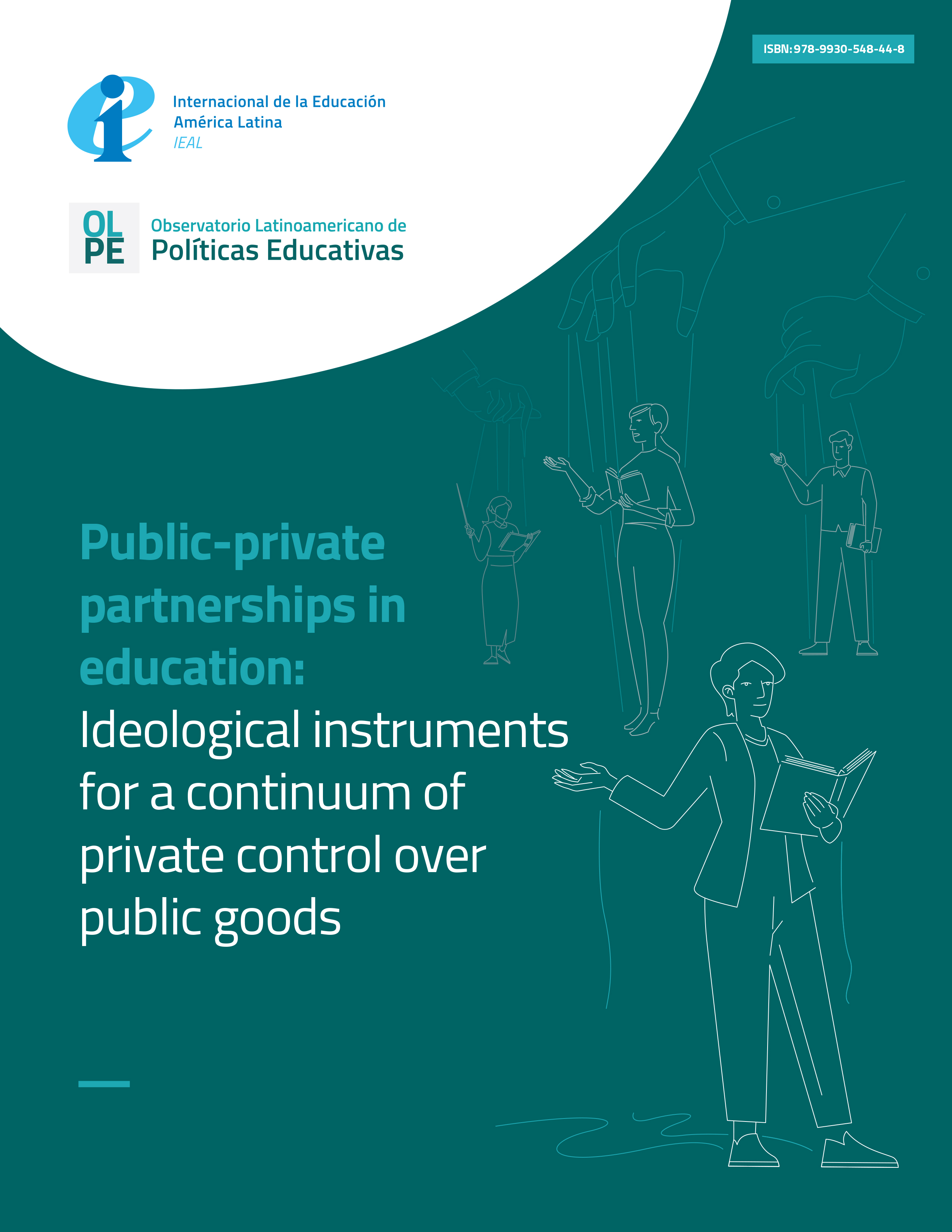Publicación

Public-private partnerships in education: Ideological instruments for a continuum of private control over public goods
In this document, the Regional Office of Education International Latin America uses several current Latin American examples to describe the way in which public-private partnerships (PPP) in education have become a platform from which international financial institutions, private business sectors, international cooperation organizations, religious groups and different multilateral actors gain access to decision-making on education policy in the countries of the region.
The publication provides key information on the role played by the United Nations and multilateralm financial organizations such as the World Bank (WB), the Inter-American Development Bank (IDB) and the Organization for Economic Cooperation and Development (OECD) in legitimizing and promoting non-state groups as providers of educational services that are funded publicly or through cooperation efforts. The Incheon Declaration and the United Nations 2030 Agenda generated greater pressure for states to co-design, co-implement and co-finance education policy, placing an emphasis on the participation of the private sector by ceding part of their functions to non-state actors or even by absenting themselves from a set of education policy decisions.


































